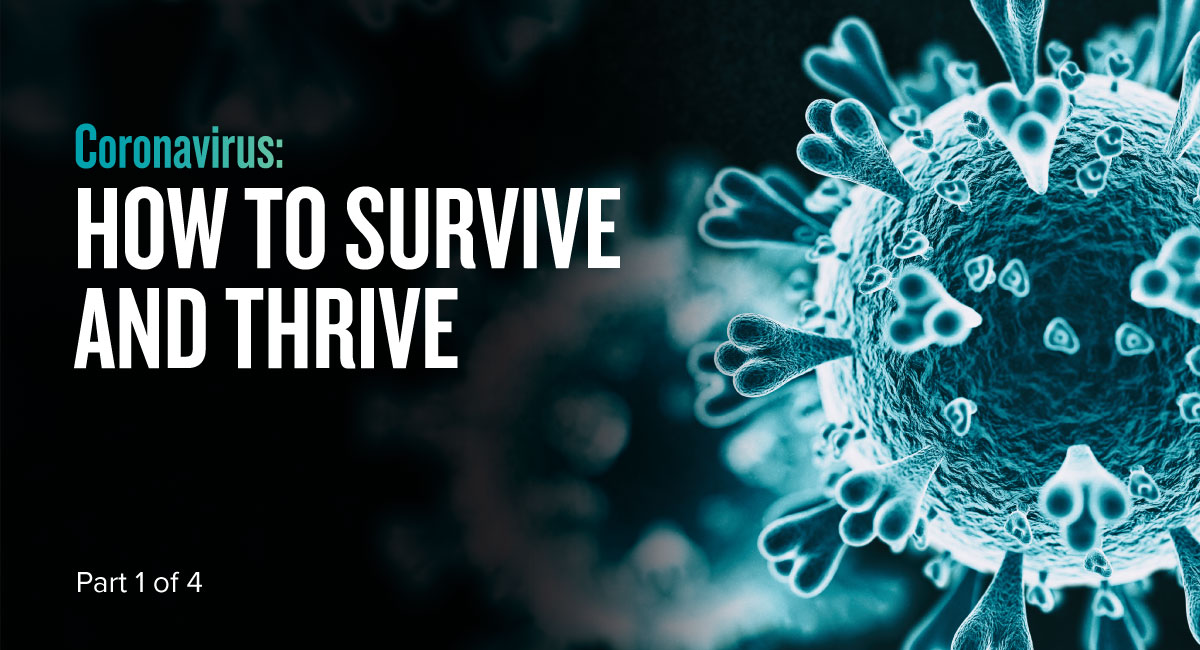Fear can paralyze us.
In the nine short weeks since the first case of COVID-19 was diagnosed in the state of Washington, life in America has changed radically. Conversations and headlines are dominated by new and unfamiliar terms. Our 401ks have been decimated, favorite bars and restaurants shuttered, and schools closed. Airports, hotels, office buildings and grocery store shelves stand oddly empty.
The fog feels eerily like 9/11. But unlike the terror attack, this enemy is invisible – an enigmatic virus spreading silently around the world, stealing lives, overwhelming health care systems and shutting down the economy. Families are suddenly without income, while small businesses and entire industries suddenly are at risk. And nobody knows when, where or how it will all end.
As a business or non-profit leader, how do you assure that your organization not only survives COVID-19 and the resulting economic tsunami, but eventually thrives?
Research and our experience in other crisis events reveal four best practices that can help move your organization toward recovery.
This is the first of a four-part series describing these steps:
- Embrace humility.
- Overcome fear with action.
- Prioritize people and purpose.
- Combine offense with defense.
Free White Paper and Webinar
Download the “Coronavirus: How to Survive and Thrive” White Paper and view the webinar recording.
Download White Paper Watch Recording
Embrace humility
Traditional crisis practice calls for well-developed protocols and plans, media and internal communications templates, training and scenario development – a playbook that can be applied to impending emergencies ranging from hurricanes to cyber-attacks and active shooters. The Covid-19 pandemic is unlike these emergencies. It is global in scale, with few answers and unfathomable worst-case scenarios. While the crisis playbook for more common disasters does not apply to this pandemic, it does provide guidance.
Other basic crisis management tenets still apply – be transparent, provide frequent updates, don’t lie or speculate, establish clear roles and responsibilities and show empathy.
Complex crisis events like this one require strong leadership skills, teams with diverse expertise and backgrounds, and outside perspectives. Leaders must create environments that are safe for people to exchange ideas and act. Emotional intelligence, calm, humility and optimism become just as important as experience.
When communicating with internal and external audiences, leaders should be open about what they know and what they don’t know. They must find the right tone and the right message. When appropriate, leaders should take responsibility for their actions or failure to act.
Nobody has ever dealt with a crisis like this before. No business continuity plan anticipated such a rapid economic meltdown and rise in infection numbers.
No leader will get everything right. The best ones bring humility and vulnerability to the effort, admit their mistakes and adjust. Most of all, good leaders immediately need to begin thinking about not just survival, but recovery.
They don’t let fear paralyze them.
Some Examples of Embracing Humility

Among the first economic casualties of the virus was the travel industry. In a video to employees which also was distributed broadly to external audiences, Marriott CEO Arne Sorenson outlined the painful steps the company was taking to stem losses from a sudden 75% drop in reservations. The heartfelt message was particularly poignant because Sorenson has been open about his battle with pancreatic cancer.

Both Walmart and Amazon have vowed to hire hundreds of thousands of new employees, raise wages and provide paid sick time. But there was a marked difference in their messages and tone. Walmart said they would hire 150,000 more workers to take some of the burden from the pandemic off their staff. Amazon said they will hire 100,000 more workers to help the company deal with the surge in demand. It was a small, but important difference, reflecting Walmart’s mission of saving people money so they can live better.
